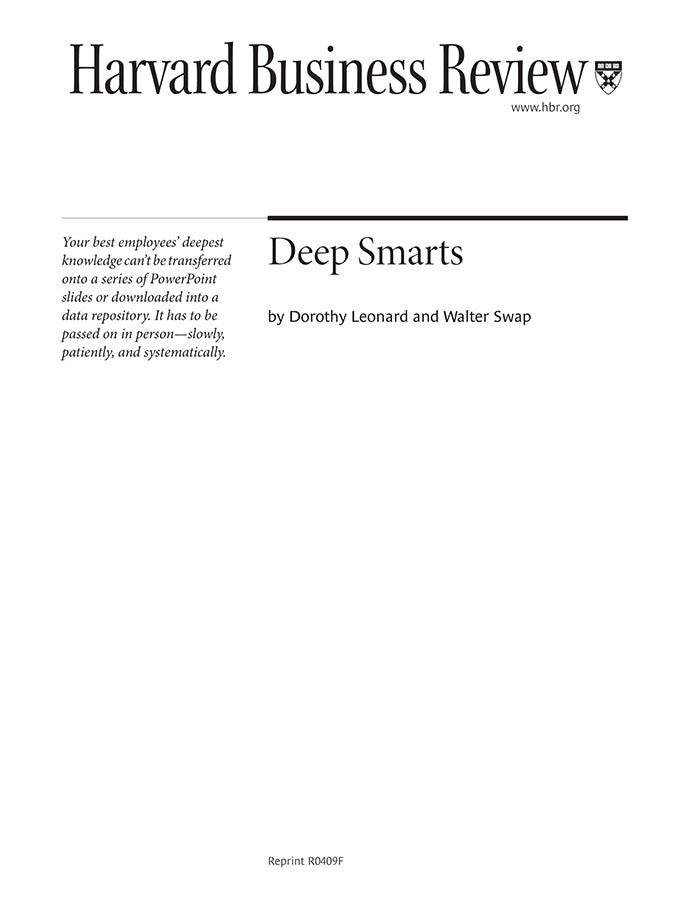Deep Smarts
受取状況を読み込めませんでした
When a person sizes up a complex situation and rapidly comes to a decision that proves to be not just good but brilliant, you think, "That was smart." After you watch him do this a few times, you realize you're in the presence of something special. It's not raw brainpower, though that helps. It's not emotional intelligence either, though that, too, is often involved. It's deep smarts. Deep smarts are not philosophical--they're not wisdom in that sense, but they're as close to wisdom as business gets. You see them in the manager who understands when and how to move into a new international market, the executive who knows just what kind of talk to give when her organization is in crisis, the technician who can track a product failure back to an interaction between independently produced elements. These are people whose knowledge would be hard to purchase on the open market. Their insight is based on know-how more than on know-what; it comprises a system view as well as expertise in individual areas. Because deep smarts are experienced based and often context specific, they can't be produced overnight or readily imported into an organization. It takes years for an individual to develop them. They can be taught, however, with the right techniques. Drawing on their forthcoming book Deep Smarts, Dorothy Leonard and Walter Swap say the best way to transfer such expertise to novices--and, on a larger scale, to make individual knowledge institutional--isn't through PowerPoint slides, a Web site of best practices, online training, project reports, or lectures. Rather, the sage needs to teach the neophyte individually how to draw wisdom from experience. Companies have to be willing to dedicate time and effort to such extensive training, but the investment more than pays for itself.
【書誌情報】
ページ数:16ページ
サイズ:A4
商品番号:HBSP-R0409F
発行日:2004/9/1
登録日:2012/3/28


